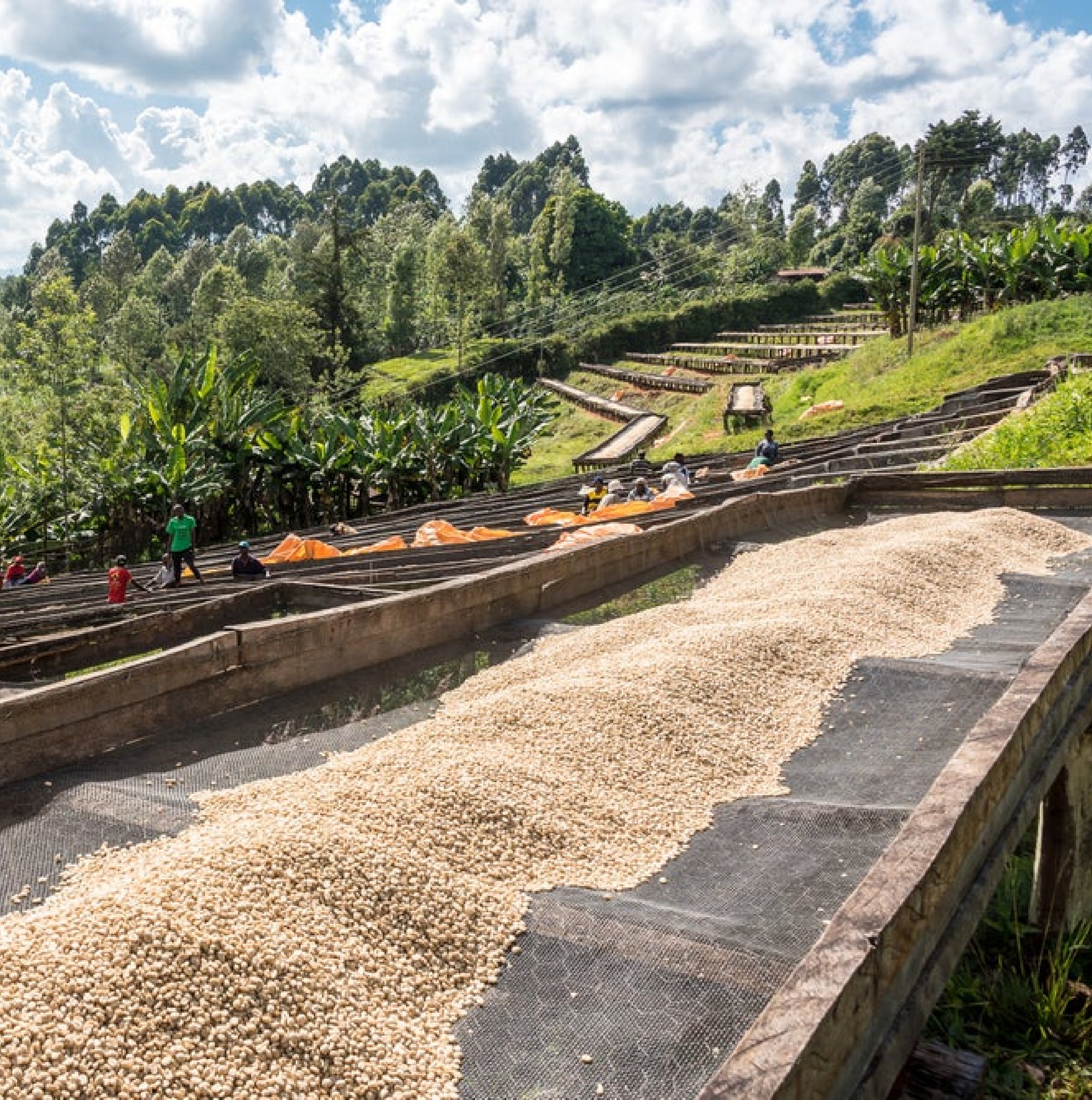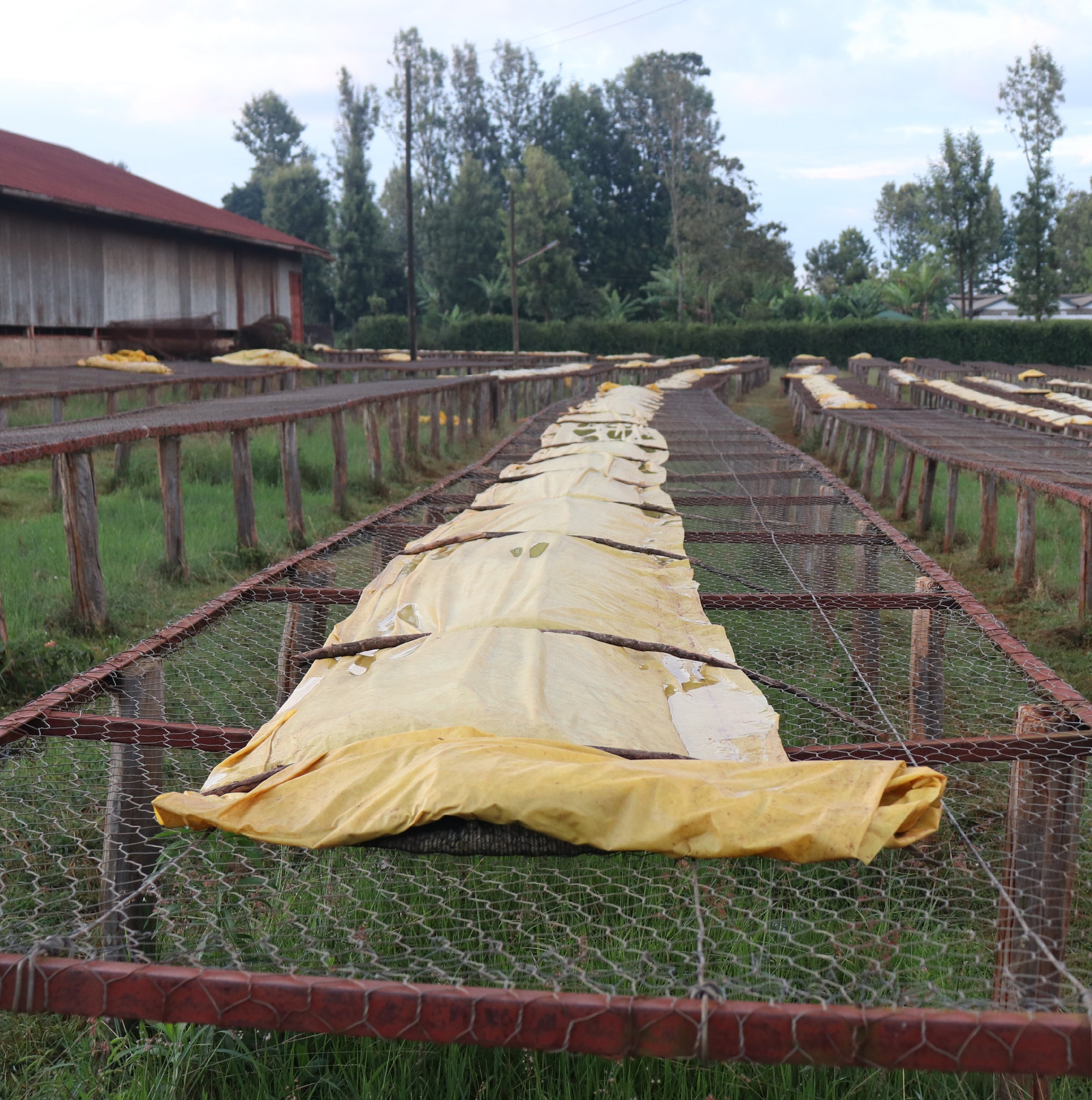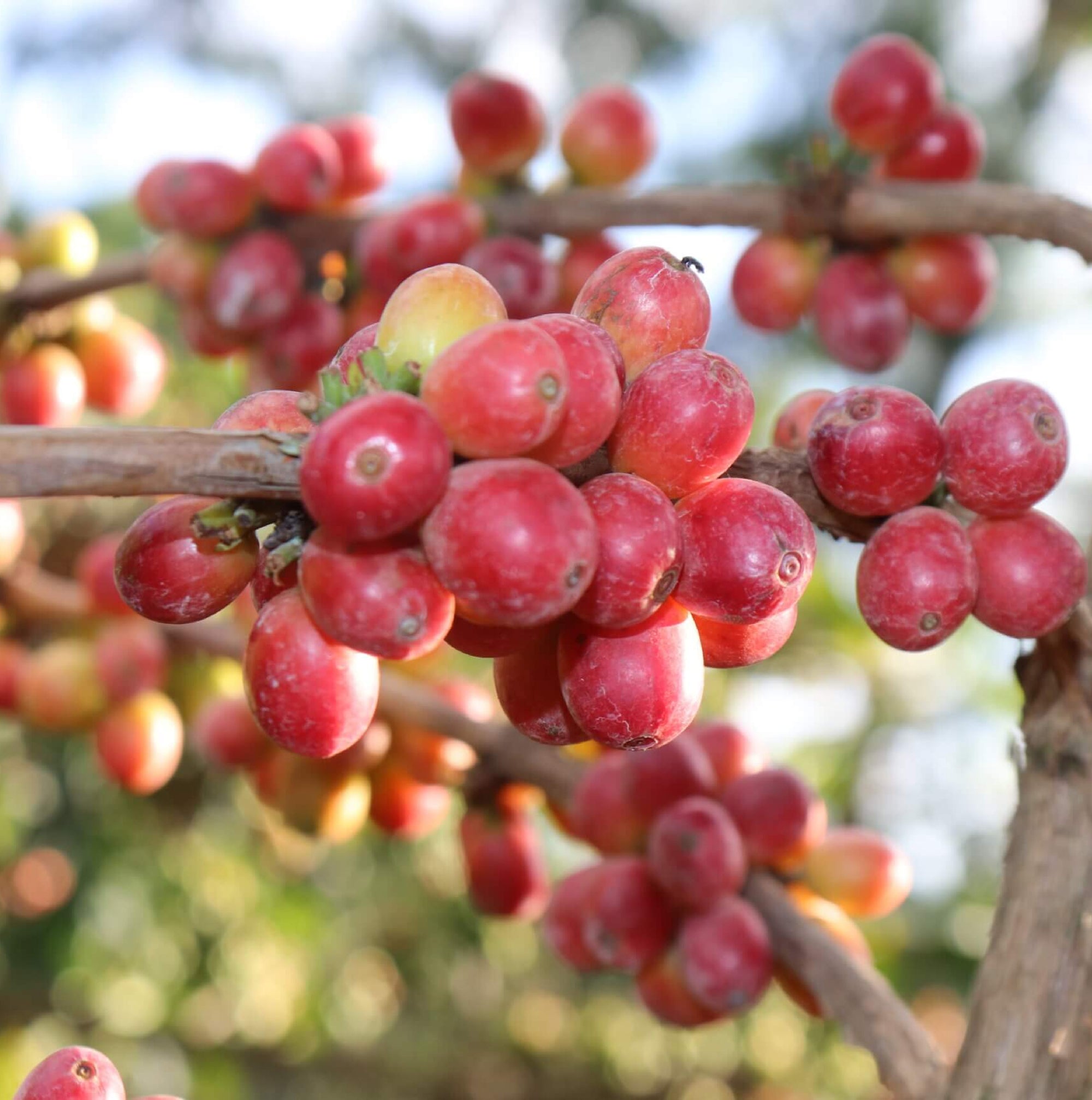



Kenya Yara PB- Filter Roast
Our first Kenyan release from the late '25 harvest, the Yara Peaberry embodies everything we love about high quality coffees from this part of Africa.
Vibrant and intense acidity carries with it the flavour of blackcurrant, like a sparking Ribena drink. There is balanced bitterness which comes across like the zest of a grapefruit and the sweetness of a marmalade. A light tea like flavour rounds out the experience.
COUNTRY - Kenya
REGION - Kiambu County
ALTITUDE - 1700 M.A.S.L
VARIETAL - SL28, SL34, Ruiru 11
PROCESSING METHOD - Washed
TASTING NOTES - Blackcurrant Ribena, Grapefruit, Black Tea
